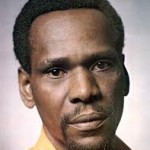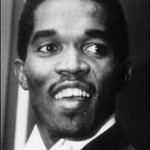Laying the foundation for the dissemination of Jamaica’s popular music to the outside world is the focus of this retrospective. Last week, the Music Diaries paid tribute to Jimmy James, one of the entertainers who were central to that process.
James, however, was by no means alone. In fact, his role of opening the floodgates for the arrival of a multitude of Jamaican stars in the United Kingdom may have been overshadowed by several others, with Laurel Aitken, Millie Small, Desmond Dekker, Wilfred ‘Jackie’ Edwards, Prince Buster, record producer Chris Blackwell and record label owner Emile Shalit, being the main contenders.

It all happened between 1960 and 1967. Laurel Aitken was the first to make the move when he migrated to the United Kingdom (UK), in 1960, to capitalize on the greater opportunities that were offered there for aspiring singers and musicians. Interestingly, it was Aitken’s second migration in 22 years, having moved with his parents and siblings from Cuba to Jamaica as an 11-year-old in 1938.
Born to a Jamaican father and a Cuban mother, Aitken began his entertainment career by singing and dancing in Kingston nightclubs and doing calypso for The Jamaica Tourist Board, which was used to entertain visitors when they alighted from tourist boats in the Kingston Harbour.
Aitken recorded a few boogie-style recordings in Jamaica before relocating to the UK, where he found the Jamaican community welcoming. There, he added to his repertoire of early Jamaican hits with some ska recordings, some of which charted as far as Spain and Belgium. Aitken thus became the first Jamaican to expose Jamaica’s foundation music – the ska – to an international audience.

Coming to prominence four years after Aitken’s arrival in the UK, Millie Small’s My Boy Lollipop outshone everything else that was happening musically in the UK at the time. The recording peaked at number two on the UK singles chart in 1964, while topping the charts in other European countries. It may, perhaps, be the most important recording in Jamaica’s music history, being the first to make other nations pause and look at Jamaica as an emerging musical powerhouse.
Small was taken to the UK, at age 15, by music mogul Chris Blackwell to help establish his Island Record Label. Her exploits on the local scene before this were two outstanding duets, one with Owen Gray (Sugar Plum in 1961) and the other with Roy Panton (We’ll Meet in 1963).

Small can truly be numbered among those responsible for laying the foundation for the dissemination of Jamaica’s popular music to the outside world.
In 1967, Desmond Dekker and The Aces’ 007 Shanty Town revealed to the outside world the conditions of ghetto dwellers and gun-toting hoodlums in Jamaica through the lyrics:
“Them a loot, them a shoot, them a wail a shanty town,
Rudeboy de pon probation, a shanty town
Rudeboy a bomb up the town, a shanty town.”
It was the biggest Jamaica-UK, hit of that period, laying another pillar in the foundation on which the dissemination of Jamaica’s popular music was built.

Prince Buster ignited the UK, ska music scene in 1963 with the hits Alcapone Guns Don’t Argue, Wash Wash, The Spider and the Fly, Mighty Rose, Love Another Love by The Schoolgirls, Dog War by The Maytals, and Oh Carolina by The Folks Brothers.
Jamaican singer Wilfred Jackie Edwards, rated as Jamaica’s most accomplished balladeer, had a few UK hits in the 1960s but found greater success when two of his compositions covered by The Spencer Davis Group – Keep On Running and Somebody Help Me reached number one on the UK charts in 1966.

The England-born Jamaican-bred music mogul Chris Blackwell could easily be the most important person in the development and dissemination of Jamaican music abroad. From as early as 1959, Blackwell produced, perhaps, the first No.1 Jamaican hit – Boogie In My Bones by Laurel Aitken. He produced several other hits on his R&B and Island labels before moving his company to the UK.
While in the UK, Blackwell played a crucial role in the production and distribution of Jamaican records in Europe. Later, in the 1970’s, Blackwell produced the albums that catapulted Bob Marley to the pinnacle of international music.

But perhaps the most unsung hero in the entire episode is the Austrian-born Emile Shalit, owner of the Melodisc record label. Shalit established the sub-label Blue Beat exclusively for Jamaican ska releases and their distribution in the UK. Shalit is said to have made several trips to Jamaica in the early 1960’s to make arrangements with the major Jamaican production houses. His move not only created a home for Jamaica’s music in the UK, but also gave the music its name.


You must log in to post a comment.